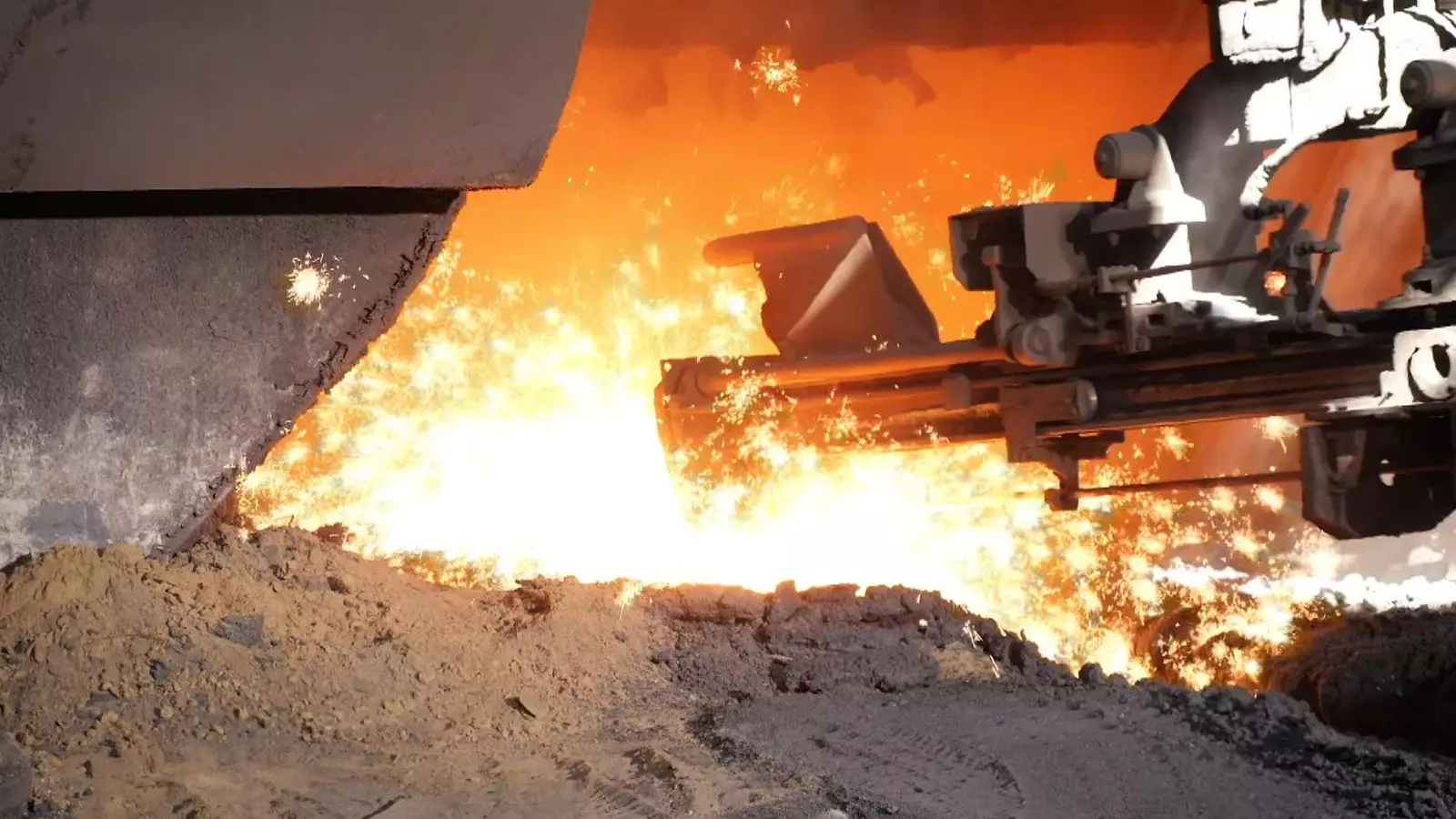Steel—a fundamental pillar of modern infrastructure—finds itself on the verge of collapse in Britain. The last operating blast furnaces in the country stand as a grim reminder of the sector’s dwindling vitality. Recently, the Chinese conglomerate Jingye, under whose ownership British Steel primarily operates, has decided to halt future orders for essential raw materials like iron ore and coal. This critical decision may seal the fate of these historic furnaces within mere days, setting the stage for an unforeseen national crisis that could ripple across industries. The prospect of losing the last two domestic steel producers highlights an urgent need for the UK government to take decisive action.
A Breach of Trust and Financial Viability
Negotiations between Jingye and the UK government have taken a sour turn, as the discussions faltered following a rejected £500 million proposal aimed at modernizing the Scunthorpe facilities with more eco-friendly electric arc furnaces. The rejection underscores a chilling reality: the investment deemed inadequate by Jingye is the same amount extended to Tata Steel, which opted to phase out its blast furnaces in favor of greener technology. This double standard raises pertinent questions about the motivations and trustworthiness of the foreign entity presiding over crucial national assets. Are we witnessing a prioritization of profit over patriotism?
The rejection appears to prioritize short-term financial interests over long-term sustainability, and the fallout threatens not only jobs but also broader economic stability. Such strategic failure encapsulates a grim intersection of global capital and national priorities, showcasing the inadequacy of current government oversight in protecting core industries.
The Irony of Dependency
As British Steel prepares to potentially shutter its operations, the nation is poised to become increasingly reliant on foreign imports for critical construction materials. This situation is paradoxical for a country traditionally known for its robust industrial legacy. The reliance on imports for steel may expose the UK to vulnerabilities, especially in light of rising geopolitical tensions and trade wars, which have only been exacerbated by the uncertain policy environment stemming from Trump’s renewed influence. This predicament is further complicated by the fact that the domestic steel supply chain is tightly intertwined with national infrastructure projects, making it essential not only to the economy but also to national security.
Nationalization: A Necessary Evil?
The specter of nationalization looms large, but the decision is fraught with implications. Government officials are justifiably wary of assuming control over a potentially unprofitable enterprise, fearing that taxpayer money may circle the drain in a long-term, loss-making venture. This hesitance disregards the urgency of securing a foundational industry that could bolster national resilience—not just against foreign market fluctuations but also against increasing demands for materials integral to defense and critical infrastructure.
Rather than merely reacting to immediate financial pressures, the government must engage in a profound rethink of its industrial strategy. The failure to prioritize such core sectors reflects an inherent short-sightedness that could have dire consequences for the future of the UK economy.
Call to Action
The crisis calls for an immediate reassessment of policies governing national industries and infrastructure. Stakeholders must proactively collaborate to forge a way forward, potentially exploring frameworks that balance investment with ecological sustainability. The battle isn’t just about saving jobs or keeping the furnaces operational; it is about securing a legacy that honors Britain’s industrial past while paving the way for a more resilient future.
The steel industry is far more than a sector; it is a litmus test for Britain’s economic independence and sustainability. Securing the future of steelmaking in the UK isn’t solely about preserving jobs; it’s an imperative challenge the nation must confront. In doing so, we reclaim a crucial aspect of our identity and assert our footing in an uncertain global landscape.


Leave a Reply